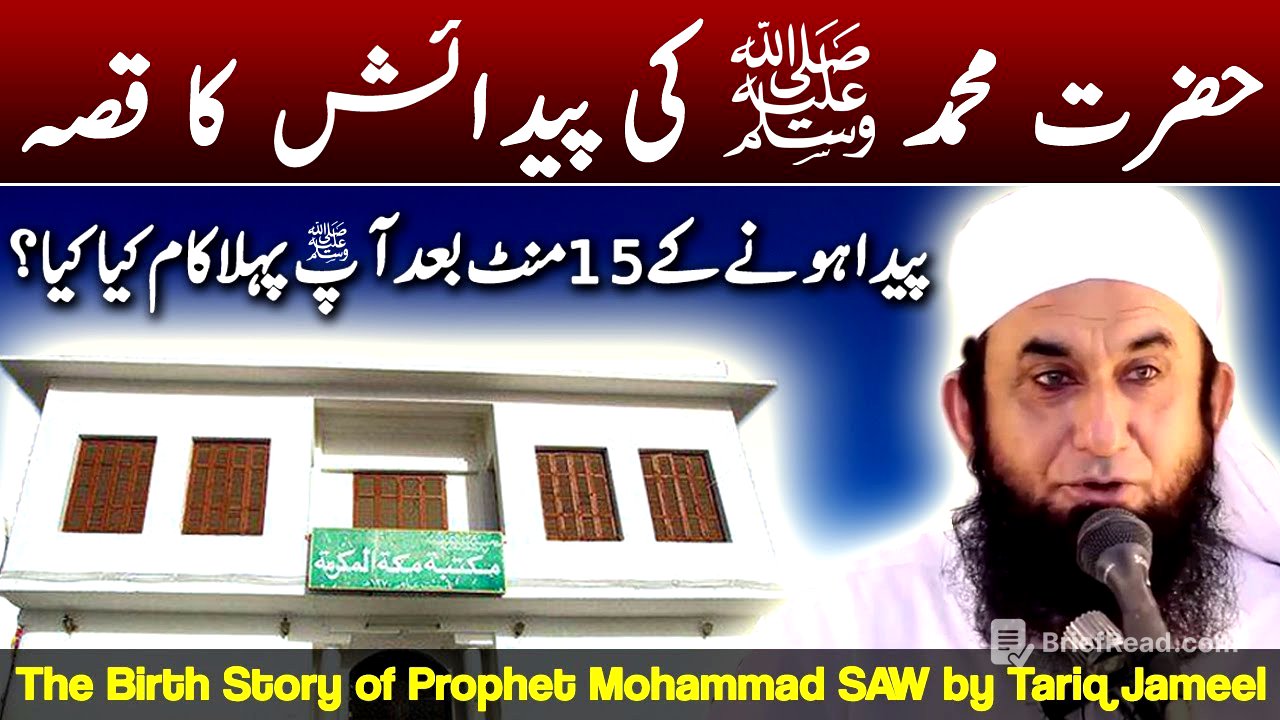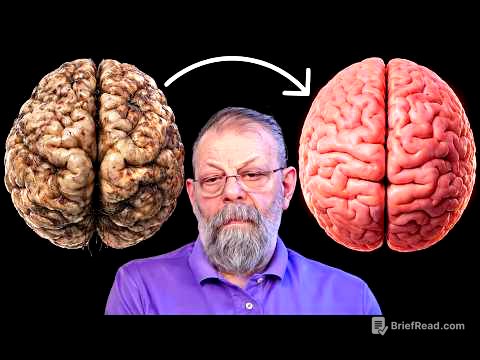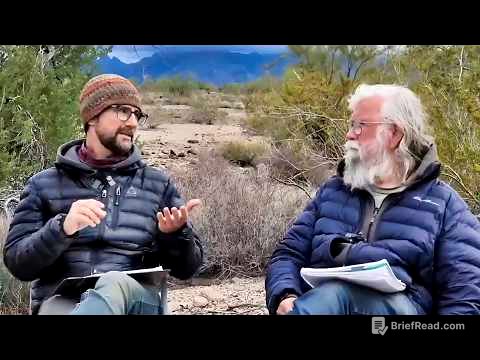TLDR;
This video discusses the unique arrival and status of Prophet Muhammad (peace be upon him) in Islam. It highlights his birth, the miracles surrounding it, and his unparalleled compassion for his Ummah (community). The speaker emphasizes the Prophet's constant concern and prayers for his followers, even during his final moments and on the Day of Judgment, and the unique attributes bestowed upon him by Allah.
- The Prophet's birth was marked by miracles and purity.
- He was given the qualities of all previous prophets.
- The Prophet's compassion for his Ummah is unparalleled, as he will intercede for them on the Day of Judgment.
- The names Allah and Muhammad are connected through numerological significance.
- The speaker encourages the audience to use the name Allah.
The Unique Birth of the Prophet [0:21]
The speaker describes the extraordinary arrival of Prophet Muhammad (peace be upon him), noting that his birth was accompanied by unique signs. Unlike ordinary births, the Prophet was born circumcised and pure, emanating a fragrant scent. Midwives were astonished by the child's exceptional nature. Shortly after his birth, the Prophet (peace be upon him) performed a prostration, demonstrating his connection with prayer from the very beginning.
Miracles Surrounding the Prophet's Birth [2:00]
The speaker continues to describe the miracles that occurred during the Prophet's birth. The house was filled with fog, and a voice instructed those present to turn the child towards the east and west, signifying his universal message. The voice declared that following the Prophet (peace be upon him) would lead to guidance and paradise, while straying from his path would result in loss. The Prophet was bestowed with the virtues, morals, and wisdom of all the previous prophets, signifying his elevated status.
The Prophet's Unparalleled Status [3:35]
The speaker emphasizes that after his birth, Allah placed the essence of 125,000 prophets within Prophet Muhammad (peace be upon him). He highlights that only Allah can truly comprehend the Prophet's existence, status, and position. The speaker then transitions into reciting Naat, poetry in praise of the Prophet, emphasizing that the Naat he recites originates from the Quran, directly from Allah. He reiterates that no one can fully recognize the Prophet's status except Allah.
The Prophet's Concern for His Ummah [6:13]
The speaker urges the audience to become true followers of Prophet Muhammad (peace be upon him) and to avoid worldly deceptions. He emphasizes that the Prophet (peace be upon him) brought a life of respect in both this world and the hereafter, a claim unmatched by anyone else. The speaker highlights the Prophet's (peace be upon him) tears, sighs, and prayers for his Ummah, which have averted punishment. He is the only prophet who cried for his Ummah while leaving this world, constantly saying "My Ummah, my Ummah."
The Prophet's Intercession on the Day of Judgment [8:17]
The speaker describes the horrors of the Day of Judgment, where even prophets will be concerned only with themselves. Amidst this chaos, a voice will be heard calling out for the Ummah. It will be Prophet Muhammad (peace be upon him), with his hands raised in prayer, interceding for his followers. He did not forget his Ummah in this world, nor will he forget them on the Day of Judgment, even when others forget their own families.
The Significance of Names: Allah and Muhammad [11:04]
The speaker explains the connection between the names Allah and Muhammad (peace be upon him). Allah created Prophet Muhammad (peace be upon him) and established auspicious connections with his name. The names Allah, Muhammad, and Ahmed all have four letters each and contain no dots in Arabic script. The Kalma (declaration of faith) "La ilaha illallah Muhammad Rasulallah" has 12 letters in each part, demonstrating a balanced and beautiful creation. The speaker encourages the audience to use the name Allah, as it is the true name of God, while "Khuda" is a translation.









